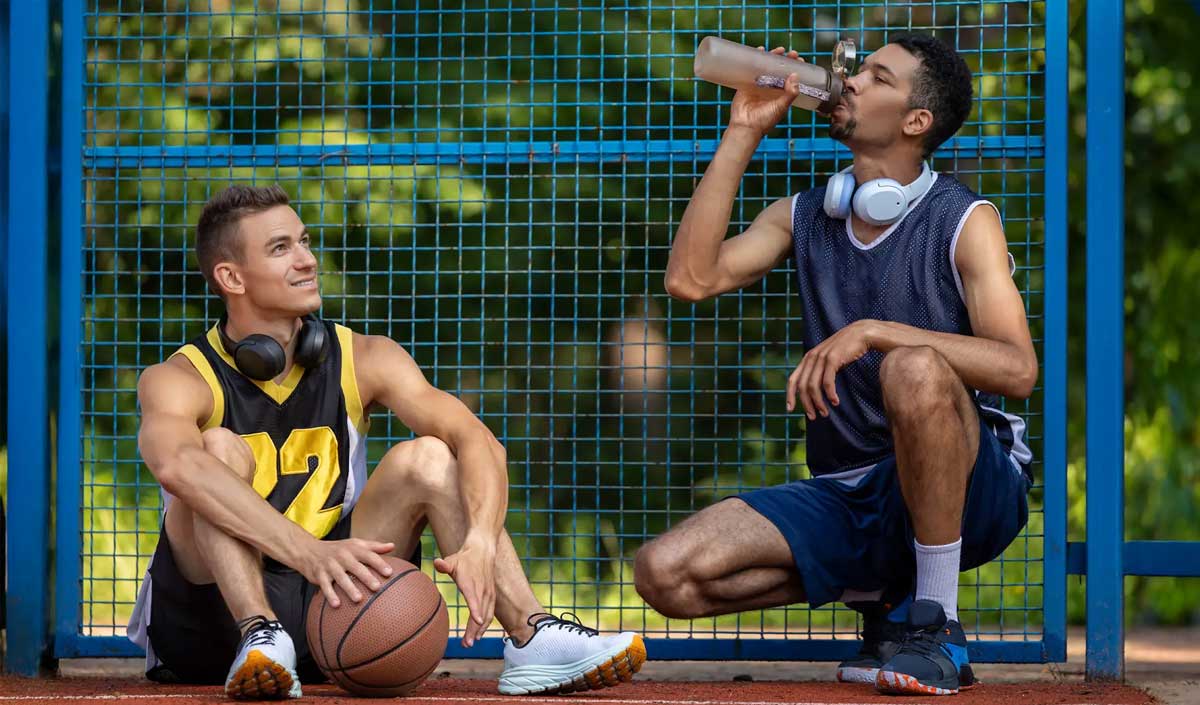
Hydration advice is everywhere for athletes, but what often gets overlooked is how fluid balance directly affects joint health. Whether you’re lifting, throwing, sprinting, or squatting, your shoulders, elbows, and knees all depend on optimal hydration to function and recover properly. This post explores why athletes need more than water to protect their joints and extend their active years.
How Hydration Impacts Shoulder, Elbow, and Knee Function
Every joint in the body, large or small, relies on cartilage, synovial fluid, and surrounding soft tissue to absorb shock and maintain smooth motion. When you’re dehydrated, synovial fluid production decreases. Cartilage is made up of 70-80% water and hydration helps maintain structure and shock-absorbing properties. For high-demand joints like the shoulder and elbow, this can mean increased friction during throwing or lifting. In the knee, dehydration amplifies impact stress, especially during jumping, cutting, or distance running.
Water Isn’t Enough: The Role of Electrolytes
When athletes sweat, they lose not just water but essential electrolytes like sodium, potassium, and magnesium. These minerals are vital for maintaining muscular control, nerve conduction, and joint stability. Without proper replenishment, fatigue sets in faster, muscles cramp, and joint alignment suffers, leading to increased strain on structures like the rotator cuff, elbow tendons, or the cartilage in the knee.
In sports where mechanics and balance matter, such as basketball, tennis, or CrossFit, electrolyte imbalance can increase the risk of acute injury or exacerbate chronic wear and tear.
Hydration Supports Recovery and Injury Prevention
Hydration doesn’t end when the workout does. Rehydrating properly after exercise helps flush out inflammation-causing waste products and supports nutrient delivery to stressed tissues. Chronic dehydration can lead to drier, more brittle cartilage increasing the risk of wear and tear. Proper hydration can ease joint stiffness and soreness while lowering the risk of sports-related conditions, including shoulder problems like labrum or rotator cuff injuries and knee issues that may require knee arthroscopy.
Athletic Hydration Tips to Protect Your Joints
- Hydrate throughout the day, not just around workouts.
- Use electrolyte-enhanced drinks after extended or high-intensity sessions.
- Consume hydrating foods like watermelon, oranges, and cucumbers.
- Watch for signs of dehydration: dark urine, fatigue, or dizziness.
When to Seek Expert Help
While proper hydration and nutrition are essential to joint health, persistent discomfort in the shoulder, elbow, or knee should never be ignored. Whether you’re recovering from a sports injury or managing joint pain that’s holding you back, a sports medicine specialist can help you explore personalized, minimally invasive solutions.
From joint preservation to advanced surgical care, an orthopedic consultation with the specialists at Illinois Bone & Joint Institute can clarify your options and help you return to doing what you love.
About the Author
Nathan G. Wetters, MD, FAAOS, is a fellowship-trained physician specializing in sports medicine, with a special focus on minimally invasive treatment of the knee and shoulder, including cartilage transplant and restoration. He has a special interest in treating injuries of athletes from the youth to professional levels.
